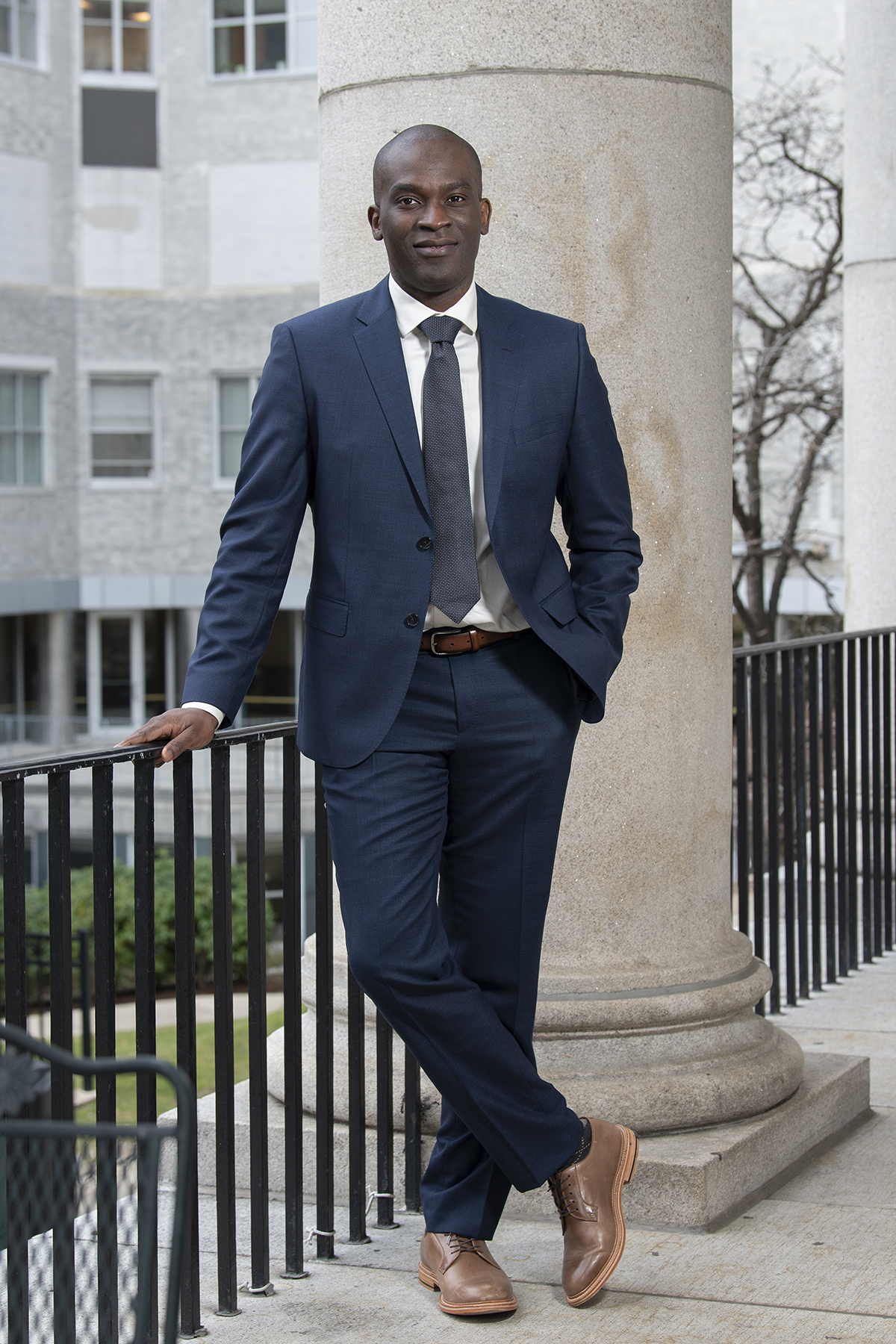 Oluwaseun (Seun) Johnson‐Akeju, MD, MMSc
Oluwaseun (Seun) Johnson‐Akeju, MD, MMSc
Massachusetts General Hospital
Anesthetist-in-Chief
Henry Isaiah Dorr Associate Professor of Research and Teaching in Anaesthetics and Anaesthesia
Dr. Johnson-Akeju is the anesthetist-in-chief at Massachusetts General and an Associate Professor of Anesthesia at Harvard Medical School. His clinical practice is primarily devoted to the care of patients with neurological diseases. His research interests are interdisciplinary and focus on using anesthesia as a probe to study mechanisms of fundamental neurobiological processes. Dr. Johnson-Akeju received a Bachelor of Science degree from the New Jersey Institute of Technology, a Doctor of Medicine degree from Rutgers–The New Jersey Medical School, and a Master of Medical Science degree from Harvard Medical School. He completed his internship and residency training in anesthesiology at Massachusetts General Hospital and post-doctoral research training at Harvard University.
What inspired your choice to pursue a career in medicine and, ultimately, anesthesiology?
I enrolled in the New Jersey Institute of Technology as an engineering science major and thought I was destined for a career at the intersection of engineering and science. I remember taking a college course, where we delved into original research articles, including the seminal developmental biology papers by the Nobel Laureate, Christiane Nüsslein-Volhard, Ph.D. By the middle of that semester, I was sold on science and a career in medicine. I went on to receive my undergraduate degree in biology. I enrolled in the New Jersey Medical School and graduated with a Doctor of Medicine degree in 2006. During medical school, I spent a formative year—between my 3rd and 4th years—performing basic science research at the National Institute of Neurological Disorders and Stroke as a Howard Hughes Medical Institute Research Scholar. This experience solidified my interest in neuroscience research, while my 4th year anesthesia clerkship solidified my interest in the patient care and neuroscientific questions embodied within our clinical specialty.
How has mentorship played a role in your career? And what advice would you have for others who are looking for mentors?
In the fall of 2019, I sat in a conference room across from the president of the Massachusetts General Hospital (MGH) and the search committee chair and was offered the opportunity to become the Mass General Anesthetist-in-Chief. Prior to that, I was content with being a clinician-scientist and had been hesitant to interview for the position due to the added burden of representation and scrutiny. However, saying yes to the offer provided an excellent opportunity for me to serve and for MGH to also celebrate the first black chief of service in our storied history. By taking on this role, it meant I could open the door just a little bit wider for the next generation, similar to the cadre of selfless mentors that made my journey possible.
My view on mentorship is that you ought to have multiple mentors, and perhaps, different mentors that reflect the changing needs of your various career stages. Diversity in leadership benefits mentees because shared experiences make for meaningful mentorship relationships. It also benefits the society at large because it models career possibilities to an untold number of “virtual” mentees. It’s important to add that a masterful mentor celebrates your success, tailors their mentoring approach to your needs and temperament, and continually seeks opportunities for you to succeed. Personally, even though I have the privilege of mentoring others by sheer virtue of my role, I still very much benefit from a cadre of mentors—most of the major decisions I make are carefully vetted with my growing council of mentors.
How have your own experiences in medicine influenced your work to create a more diverse and inclusive profession? AND/OR What drives your work to create a more diverse and inclusive profession?
Diversity and inclusion efforts are often framed, and rightfully so, as social justice or moral imperatives. For meaningful headway in diversity and inclusion, it is essential to clearly articulate the business case for diversity and inclusion to ensure that institutions understand that it is in their best interests. Instead of being something we ought to consider if the budget permits, funding for diversity and inclusion efforts should be properly ensconced in operating budgets. A recent book by Scott E. Page, The Diversity Bonus, very thoughtfully lays out the logic and business case for diversity of persons and lived experiences, and by proxy, diversity of thoughts and ideas. In medicine, we need to continue to codify how diversity and inclusion efforts are essential for eliminating existing healthcare disparities, driving value-based care, fostering innovation, and bettering the financial bottom line. It’s important to note that fostering diversity simply for the sake of enhancing statistics is unlikely to be beneficial. Rather, an inclusive environment where everyone understands their opinions are welcome and respected is essential for fully reaping the institutional and societal benefits of diverse workplaces.
